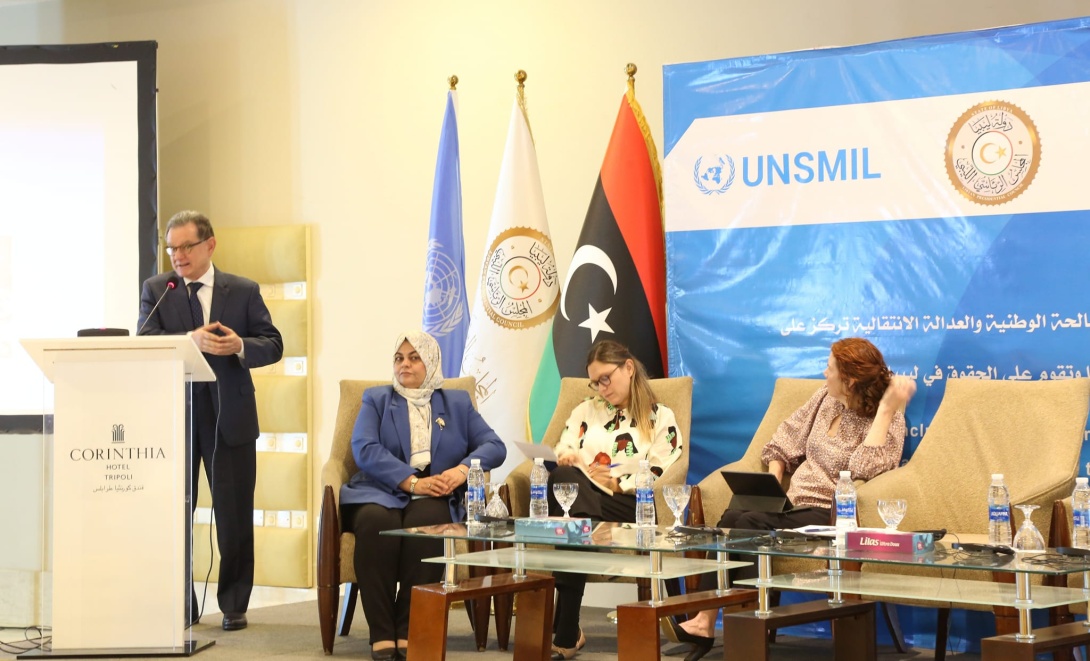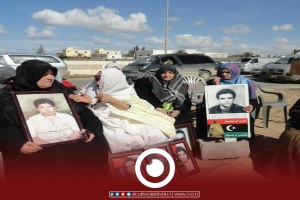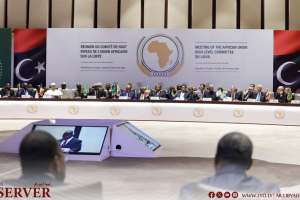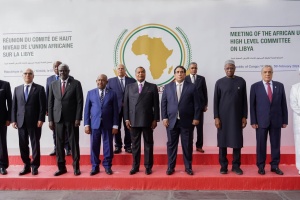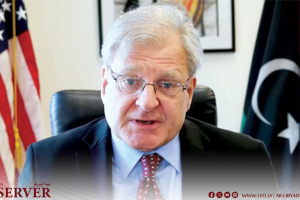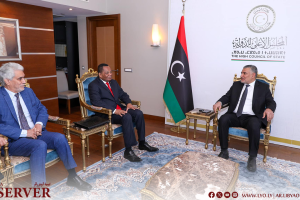The Conference to Support National Reconciliation and Transitional Justice discussed a draft law "Dhat Al-Bayn" (Social Accord) prepared by the Presidential Council on Monday.
The Deputy Head of the Presidential Council, Abdullah Al-Lafi, chaired the conference to support a comprehensive process for national reconciliation and transitional justice in the capital, Tripoli, with the participation of the Assistant Secretary-General of the United Nations and Resident Coordinator for Humanitarian Affairs in Libya, Georgette Gagnon, a number of international, local and legal experts, some members of the House of Representatives and the High Council of State, and representatives of families of victims from various parties.
Al-Lafi stressed that the conference came at a sensitive time and represented a major challenge to the Presidential Council in managing the national reconciliation project, through one of its most important tracks, which is the transitional justice, adding that the Presidential Council, since the Berlin Conference, and then the Tunis meetings, as well as up to the Geneva conference, spared no effort to implement the national reconciliation project and achieve law and justice.
Meanwhile, Gagnon spoke about the importance of the conference, as it comes weeks before the comprehensive national conference, noting that the United Nations is committed to supporting rights, based on the success of national reconciliation and reaching the greatest degree of consensus on the fundamental points of disagreement. She called for addressing the roots of the conflict, and for focusing on accountability and the effective participation of victims.
The first session, according to the statement, reviewed the draft law prepared by the Presidential Council, and the UN mission’s observations on it. While the second session discussed guarantees for safe, informed and comprehensive participation in the process of transitional justice and national reconciliation in Libya. The participants, who were divided into working groups, also discussed formulating recommendations for safe and meaningful participation for victims in the Libyan issue.

